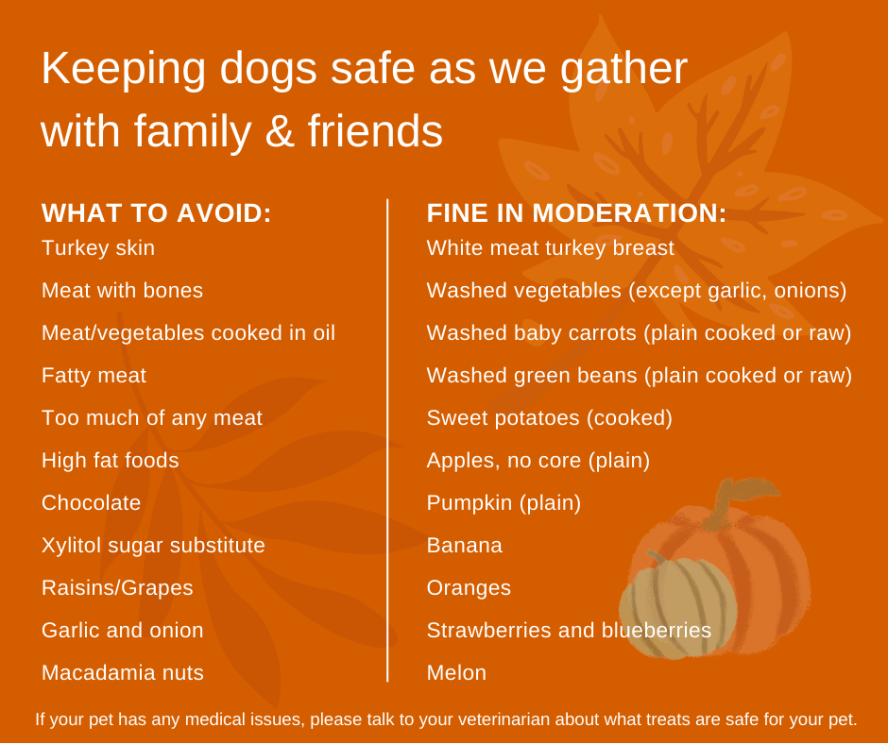-
About
- Leadership & Faculty
- News & Events
-
Academics
- Graduate
- Advanced Clinical Training
- Continuing Education
- Academic Departments
- Academic Offices
- Simulation Experiences
-
Student Life
- Offices
-
Research
-
Hospitals & Clinics
- Emergency Care
- Hospital Services
-
Community Outreach
- Volunteer
- D.V.M. Technical Standards
Healthy eating for dogs during this time of year
Keeping dogs safe during the gathering season.

As a season of gathering is upon us during which an abundance of rich foods will fill our homes, Board Certified Veterinary Nutritionists® at Cummings School of Veterinary Medicine at Tufts University share advice on what you should and should not feed your dogs.
WHAT TO AVOID:
- Large amounts of treats of any kind.
- Cooking twine (strings used for tying up a turkey or roast) and teriyaki sticks.
- Rich, fatty foods like turkey skin, fatty meats, meats/vegetables cooked in oil, cheese, or ice cream which can cause vomiting or pancreatitis.
- Raw meat, bones, or eggs which can contain dangerous bacteria
- Chocolate, which can be toxic, causing everything from GI upset to seizures and potentially death.
- Xylitol sugar substitute, which is extremely toxic to dogs and can cause severe, very low blood sugar (hypoglycemia) and/or severe liver failure and even death.
- Bones of any kind (raw or cooked), which can cause an obstruction in the intestines or damage teeth.
- Raisins/grapes, which can damage the kidneys.
- Garlic and onion, which can cause red blood cell problems.
- Macadamia nuts.
FINE IN MODERATION:
Some dogs have sensitive stomachs and shouldn’t have any sudden changes in food that might result in vomiting or loose stools. If your dog doesn’t have any medical conditions, they can have up to 10% of their daily calories from treats (including some human foods).
- Small amount of cooked white meat turkey breast (40 calories per ounce).
- Baby carrots (plain, 4-5 calories each), raw or cooked.
- Green beans (plain, 2 calories each), raw or cooked.
- Pumpkin puree (not pumpkin pie filling)
- Apples (chopped and plain, 30 calories in four ounces).
ADDITIONAL TIPS:
- Make sure to fasten all waste receptacles—dogs can be experts at getting into places/things they aren’t supposed to.
- Talk with visiting family members about what your dogs can and can’t have, especially young children.
If you suspect your pet has potential toxicity from ingesting a food item of concern, call your veterinarian or ASPCA Animal Poison Control Center at (888) 426-4435.
Department:
Foster Hospital for Small Animals